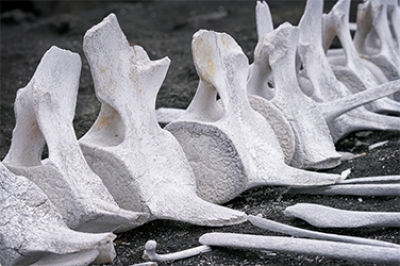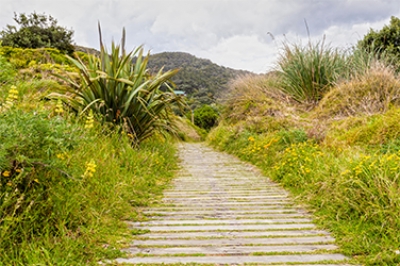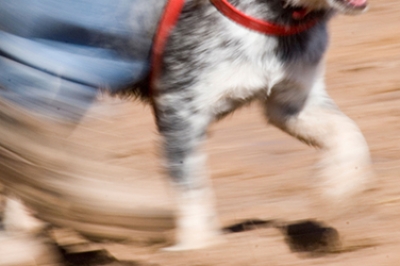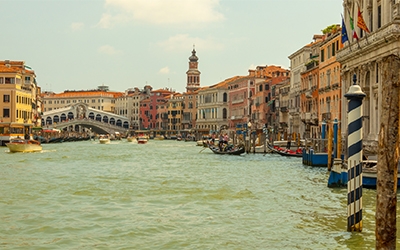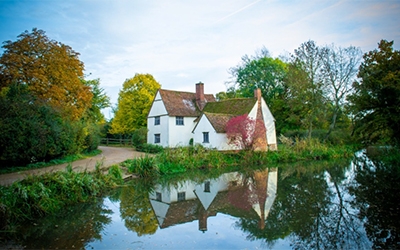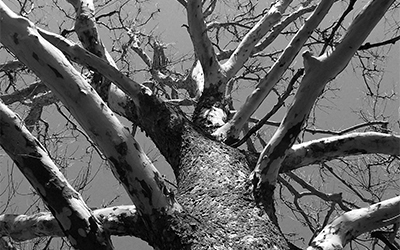Jolley Prize Story
A video in the museum foyer chronicles the dismantling of a rotting whale that had beached itself on a nearby coast. The machinery hauling away its distended remains and the workers standing knee-deep in the guts of the creature arrest my attention; for the longest time I thought the death of a whale one of the saddest things imaginable. My teacher, Mr Maurice, schooled me otherwise. What’s worse than death is death without purpose.
... (read more)In the stillness, after the fireworks, I stood for a while at the window. The bay below was crammed with the pretty lights of marine craft and it looked as though you could step from one boat to another, all the way across the harbour.
‘Why don’t I do that?’ I thought, and stayed there for some time, plotting my passage across the decks and bows.
... (read more)Georgie heads towards a bench in the shade. No prams or bags or snack boxes on it. No other parents looking for playground chitchat. Max scuffs along a few metres behind her. He’s waving a stick like a metal detector and mumbles to himself. Georgie sits down and waves for him to hurry up. She should’ve shelved it by now. You can’t hurry Max. He’s always walked to the beat of his own drum. At his own pace. He stops for a moment to look at the sky and holds two hands up around his eyes like binoculars. He’s looking, maybe at something, maybe at nothing.
... (read more)D likes my photograph, the one of me in the 1940s shorts and tight T-shirt, the one I posted to the internet just so that he would see. He watches my story – watches as I make my way through Italian museums, drink Campari, buy a straw hat with a grosgrain band. It is peak summer. It is Italy. It is forty degrees. I have to tell you: I hold four tenets to be true. I still believe in trains that run on time, in the solemn power of dandelion wishes, that ripe heirloom tomatoes are the embodiment of the sensual life, and that you shouldn’t use people. Hold fast, and the compass will point true north.
... (read more)One interpretation of the facts is that Jean-Michel Houvrée produced his most arresting art only after he had died. Born in 1694 in Ariège-sur-Mentouin, a village a few kilometres north of Carcassone, to a moderately prosperous inn-owner and his wife, he was brought up a Catholic but embraced Jansenism in his early twenties. He was educated at the local village school until the age of fourteen: an indifferent scholar in the classroom, he was an avid student of the natural world. He was a good boy, obedient to his parents, kind to his friends, open to the loving grace of God. He had big feet, thick black hair, dark brown eyes, a shy smile. Any free time he had after assisting his father in the inn, he would wander the sun-baked lanes and fields carrying cheese and home-baked bread in his bag, beneath a sky colour-washed fresh each day by his Creator.
... (read more)She’d offered to lay the table (‘Oh no’) or make a salad (‘It’s basically out of a bag’). What she could do, said Amy, was track down That Child, ‘somewhere down the garden. It’s terribly overgrown.’ Borrow my boots if you like, she called at Elizabeth’s departing back. The child, when found, was in a dead apple tree, not dangerously high, but in a controlled dangling.
... (read more)In today's episode, listen to Mykaela Saunders read the entirety of her remarkable 'River Story', which won this year's ABR Elizabeth Jolley Short Story Prize. Mykaela is a Koori writer, teacher, and community researcher. Of Dharug and Lebanese ancestry, she’s working-class and queer, and belongs to the Tweed Aboriginal community. Mykaela has worked in Aboriginal education since 2003, and her research explores trans-generational trauma and healing in her community.
... (read more)A crow-shaped shadow flies across the river. Juna knows that her daughter is coming, so the right thing to do is make her favourite feed. Juna casts a fishing net over the river with her mind. The net drifts onto the surface, slips under the skin, and is swallowed by the water. The net descends through the deep water slowly, resting on the bed. River grass unflattens and pokes up between the spaces. Juna sings a song to attract fish to the area.
... (read more)O.G. and Tebita sat down by the river. Several minutes of confused communication had concluded, once again, in a revelation of O.G.’s obtuseness. O.G. had asked the name of the river, as it wasn’t yet the Nile. But Tebita kept saying iteru, which O.G. knew meant river. So O.G. pointed again to the water and said ‘But how is this river called? What is the name on it? Which river is this?’ And, despite the frustration, was impressed she could even ask the question three different ways after – was it five? – weeks in Abydos. Time, her friend, her enemy, had become difficult to reckon.
... (read more)It was important that no one took your photograph because you didn’t want to end up a rude picture for bad men to download. We were very sure of that, very certain in our certainty. ‘Noah Potnik has a program,’ Felix and Otis swore, ‘that strips the clothes from any photo to show what the person looks like underneath.’ Noah Potnik had nude pictures of Gal Gadot and Emma Watson and Gigi Hadid, and Felix and Otis told how he’d flashed these images to them with a horrible grin on the bus one afternoon, their eyes growing as big as paper plates because with this power a person could X-ray past the clothes of anyone they wanted, but that meant that even though for some reason Noah Potnik didn’t have any pictures of boys it must be possible that they, too – Felix and Otis – could end up flying around the internet where people would stare at them with their clothes off.
... (read more)
